Best Practices
Best practices
Best Practices
1. PEER GROUP LEARNING (PGL)
What Is Peer Learning?
Peer learning is an education method that helps students solidifies their knowledge by teaching each other. One student tutoring another in a supervised environment can result in better learning and retention. Peer learning is best supported by other learning strategies, including the Constructivism Learning Theory and the Connectivism Learning Theory. Constructivist learning suggests that knowledge is constructed by each individual student. The new concepts they learn are built upon their existing knowledge and beliefs. Constructivism also proposes that learning is an active process and a social activity. These concepts tie in well with peer learning. 'Peer group. Technically a peer group is any collectivity in which the members share some common characteristics, such as age or ethnicity. It most commonly refers to age groups in general, but more specifically to adolescent groups where members are closely bound together by youth culture.
The peer group learning method can be applied many fields. The strategy was firstly introduced by the Department of Economics in the college as a department level programme. Later it was introduced as the Best practice of the college from 2020-21 academic year. The programme aims to cater opportunities to the senior students for sharing their knowledge with their junior students. Initially the programme was mainly targeted to develop the teaching skills, communication skills, leadership skills, confidence building..etc of the students. But later the scope the programme has been changed widely. Thus the structure of the programme altered and incorporated many academic activities in to the group.
Why Is Peer Learning Important?
Teamwork: Peer learning fosters teamwork, cooperation, patience, and better social skills. In a cooperative peer learning environment, each student’s strengths can serve to complement the group and enhance learning. Becoming skilled at working with and learning from one's peers can start at a young age in the classroom.
Better Feedback: Often, students are not able to recognize the gaps in their own knowledge. But when they learn with their peers, they can see new processes for answering questions and come up with creative, collaborative solutions. Importantly, they will carry these new perspectives, as well as a willingness to seek and accept feedback, with them as they progress in their education.
Supports Diversity: Peer learning fosters diversity and depth in a student’s knowledge and opinions. Learning from peers of different backgrounds, views, and ethnicities fosters an environment of mutual respect, gratitude, and progress. It’s the differences between students that add a richness to the learning environment. Supporting diversity through peer learning is part of culturally responsive teaching.
What Are the Benefits of Peer Learning? :
It’s hard to number all the benefits of peer learning, but some of them include new perspectives, more social interaction, and deepened personal learning. See more information on these specific areas below.
New Perspectives for Students: If a student learns exclusively from the teacher, they may only gain one new perspective. Learning from their peers can add numerous helpful perspectives, nuances, and layers to a student’s knowledge.
Social Interaction Makes Studying Fun: By nature, humans are social beings. We long to make connections and be part of a group. The added element of social interaction in peer learning can be exciting and enriching. Students who may be hesitant to interact with the teacher may be more willing to open up to their peers.
Teaching Others Helps Students Learn: Nothing requires you to feel confident in your own knowledge quite like teaching what you know to someone else. As mentioned, peer learning can help students learn and solidify their own knowledge. Effective teaching requires a deeper level of knowledge on a subject. As a whole the programme will help the students to enhance their various capabilities with in a friendly atmosphere.
2. Heritage Museum
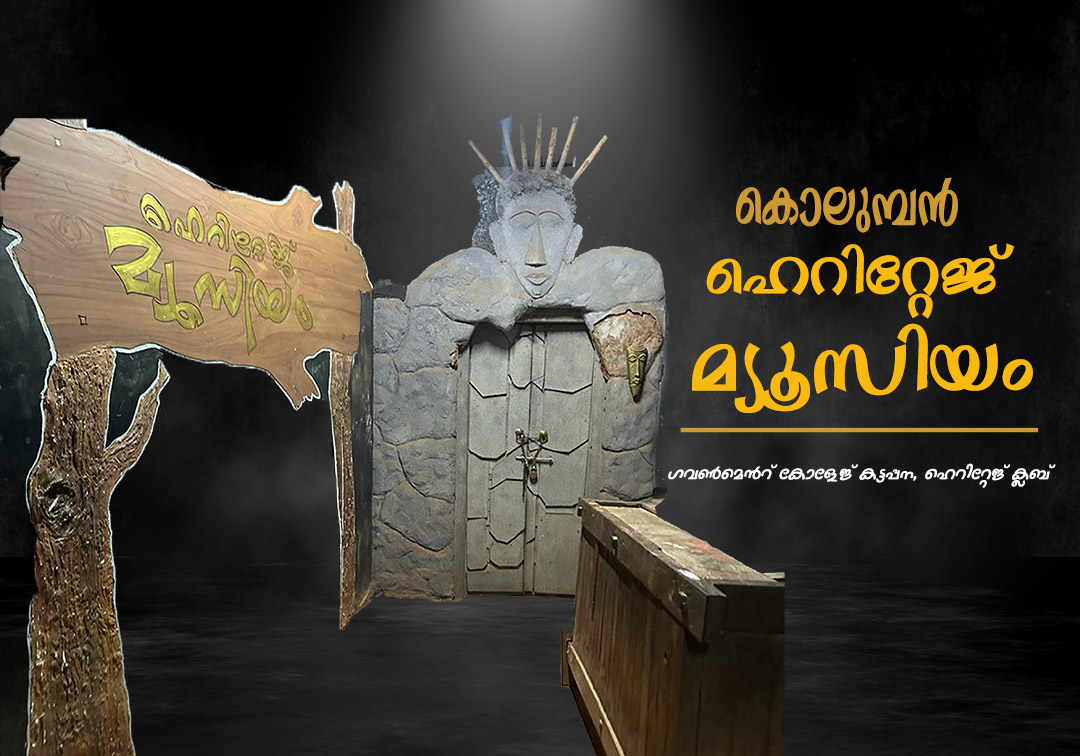

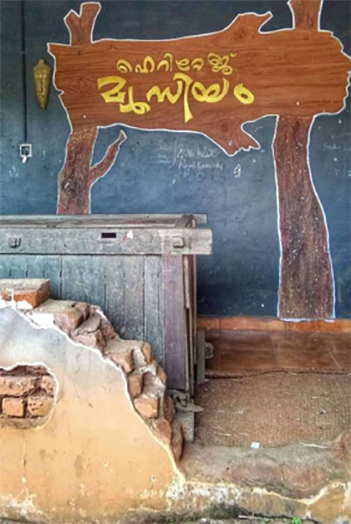
Peer Group Learning Activities
- One day camp for PG Students- Teach Back-on 22.6.2022 by Corporate Trainer Shri.Eldho Paulose. Students from M Com, MA Economics and Malayalam and MSc Chemistry were participated.
.jpg)
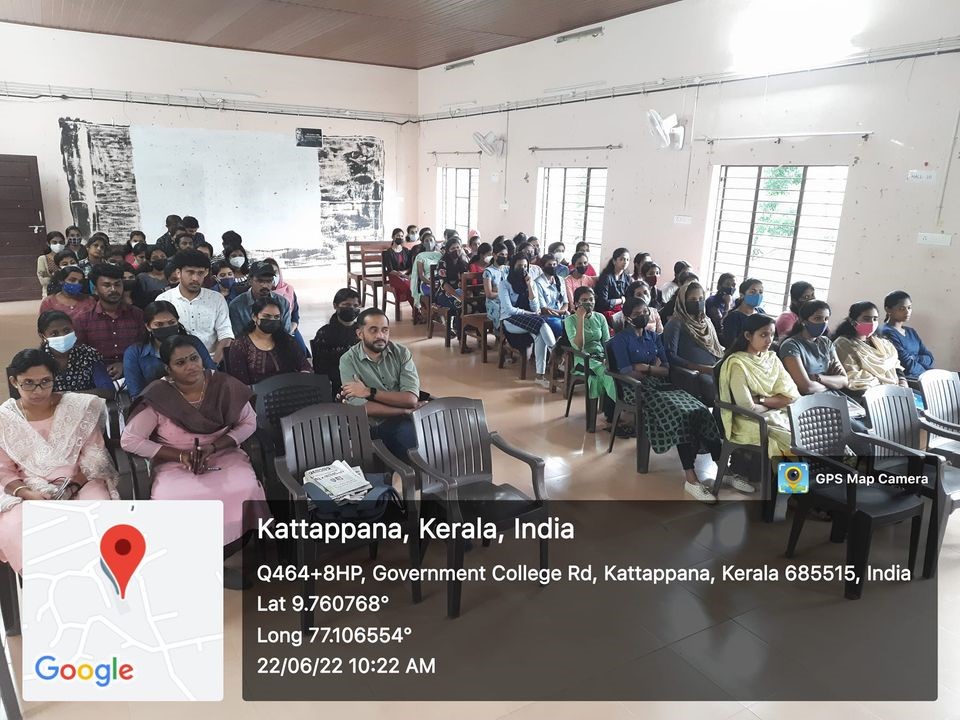
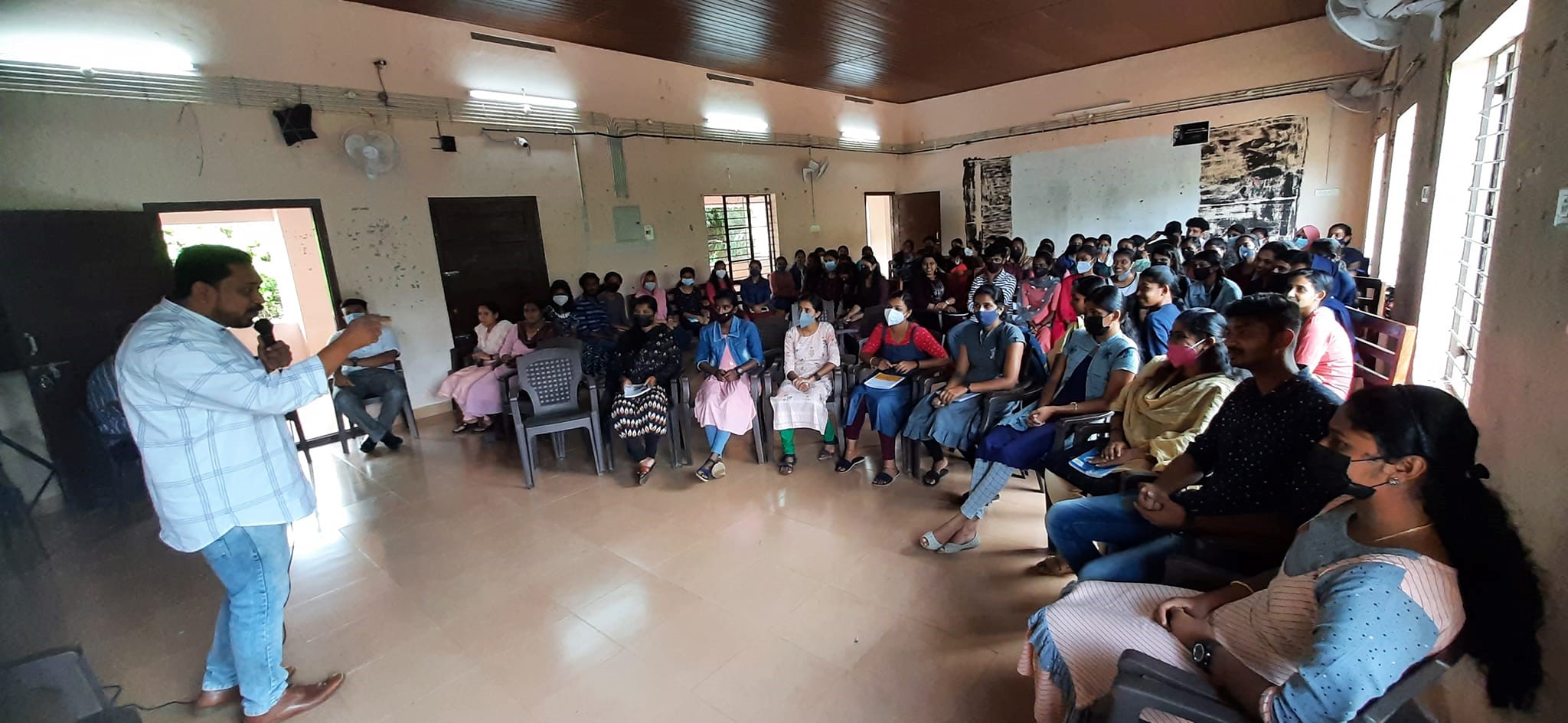
2. PGL Inter-Disciplinary Talk (IDT) Series...PGL Teachers from Commerce and Economics took micro classes on diverse topics to students from Chemistry and Malayalam departments @ Edusat room on 24.6.2022.
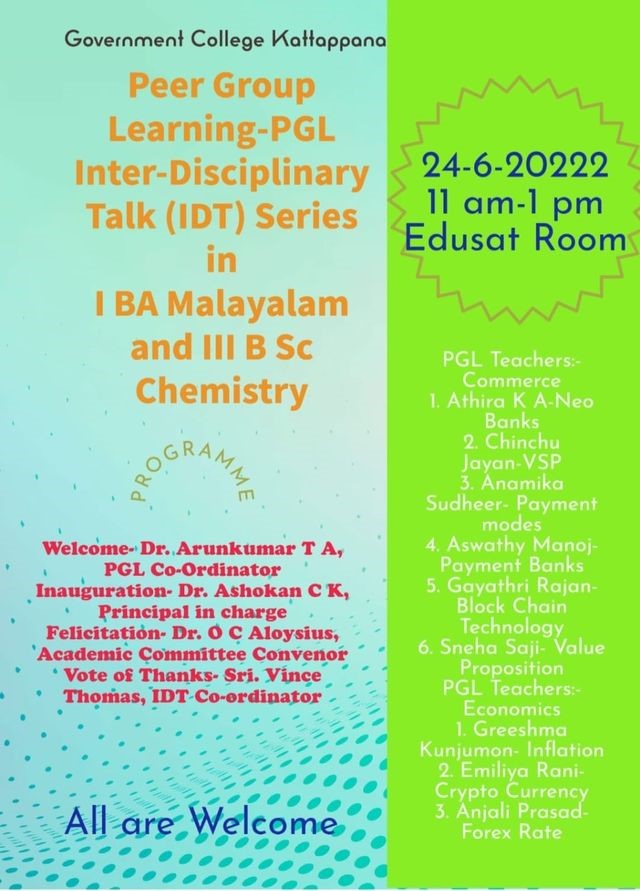
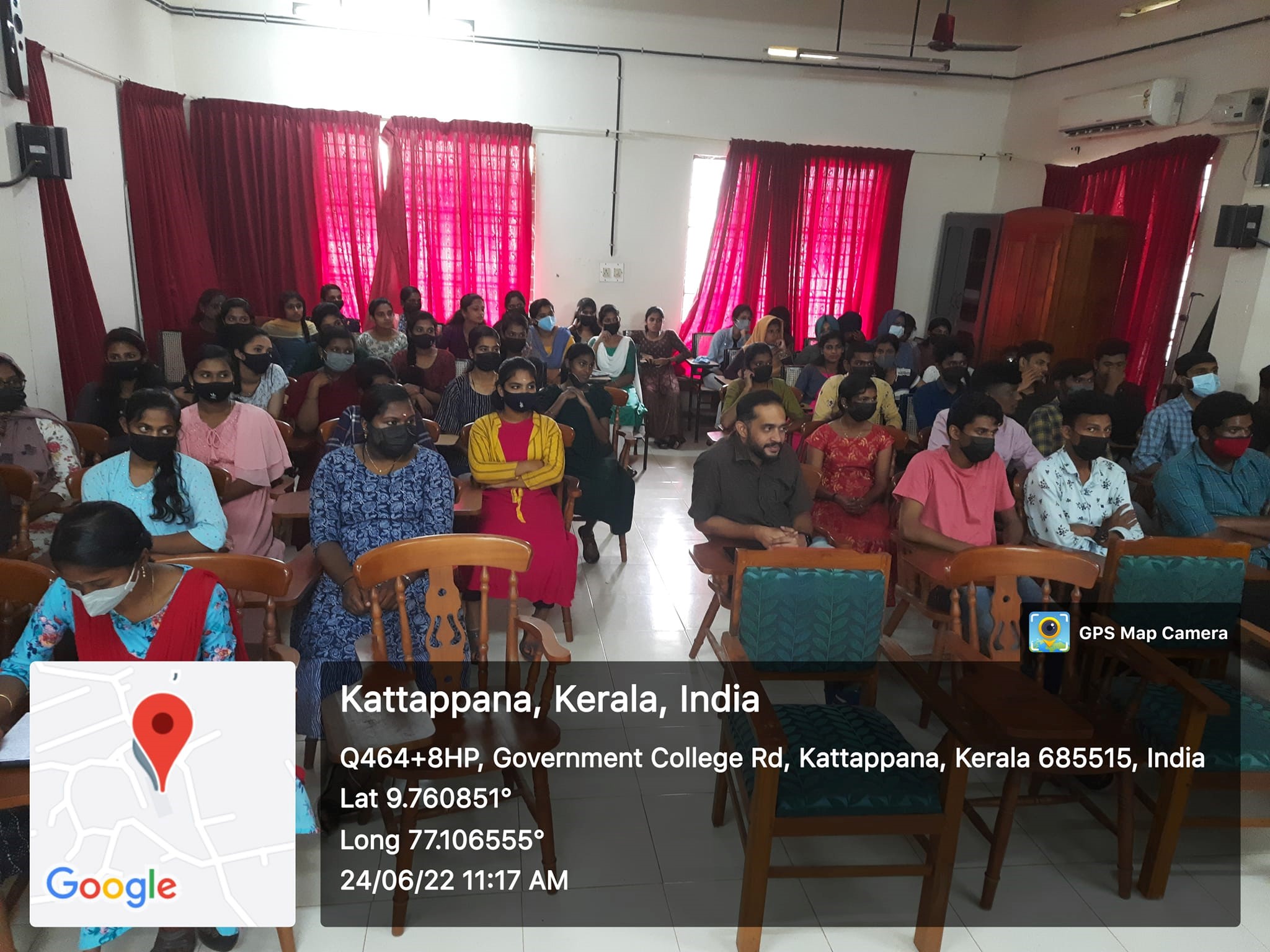
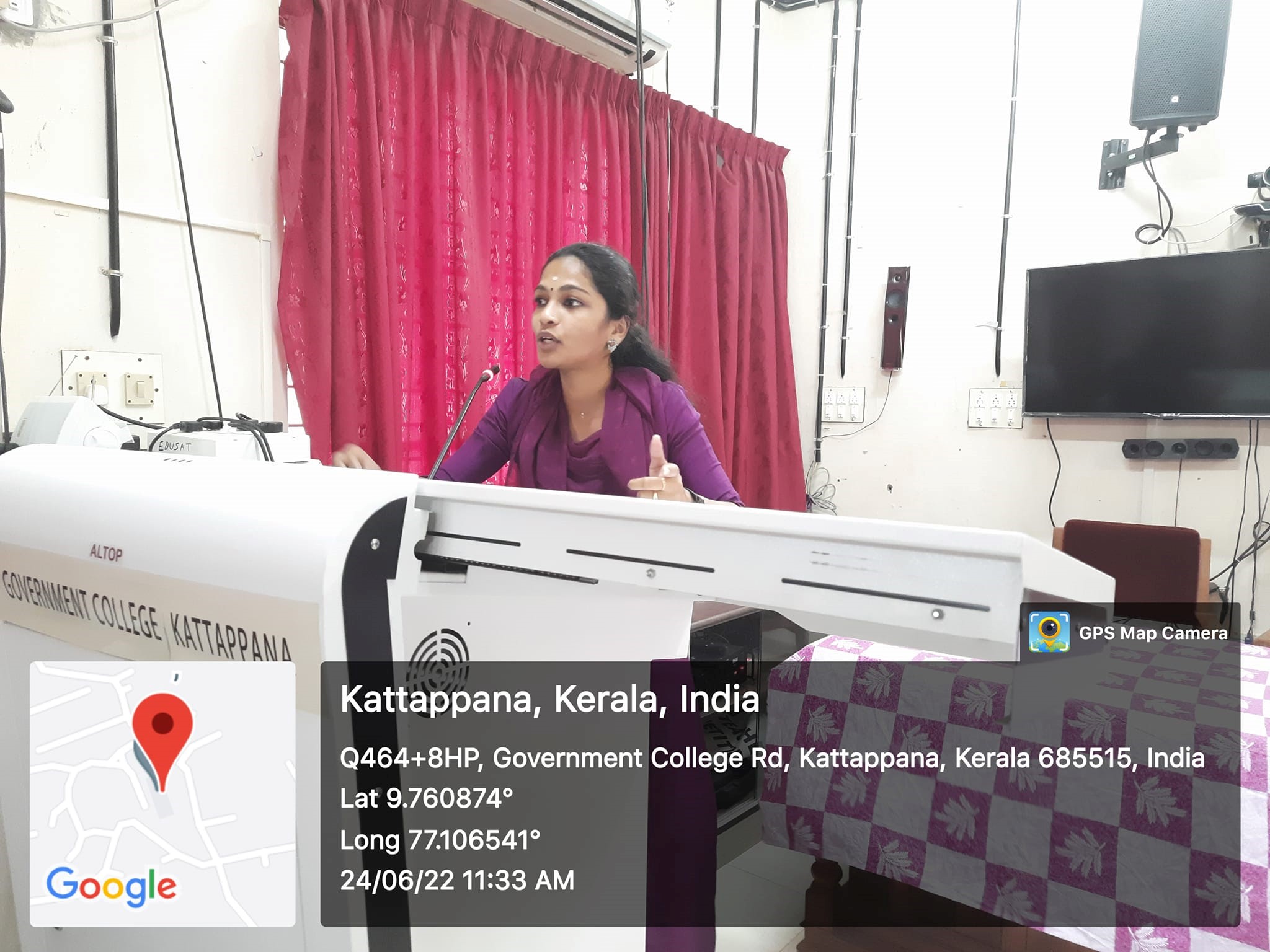
3. PGL constructive and fruitful discussions for the AY 2022-23. Dr. O C Aloysius, Academic Committee Convenor, Dr. Arunkumar T A, PGL Co-ordinator, internal co-ordinators and P G students from Commerce, Economics, Malayalam and Chemistry participated. (21-6-2022)
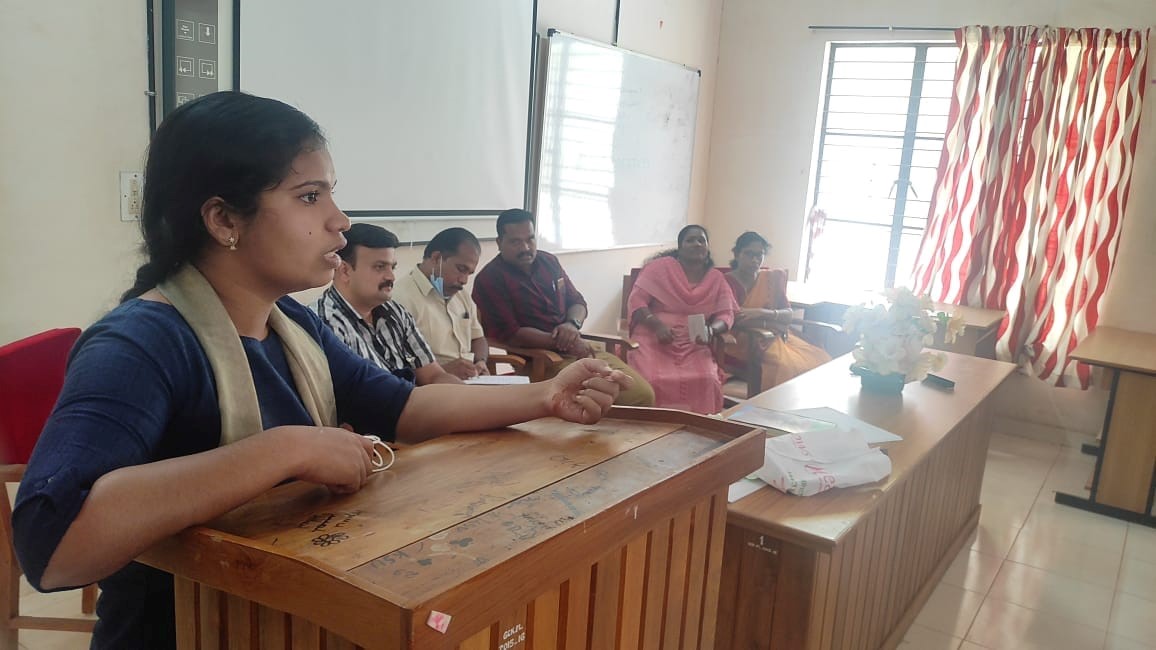
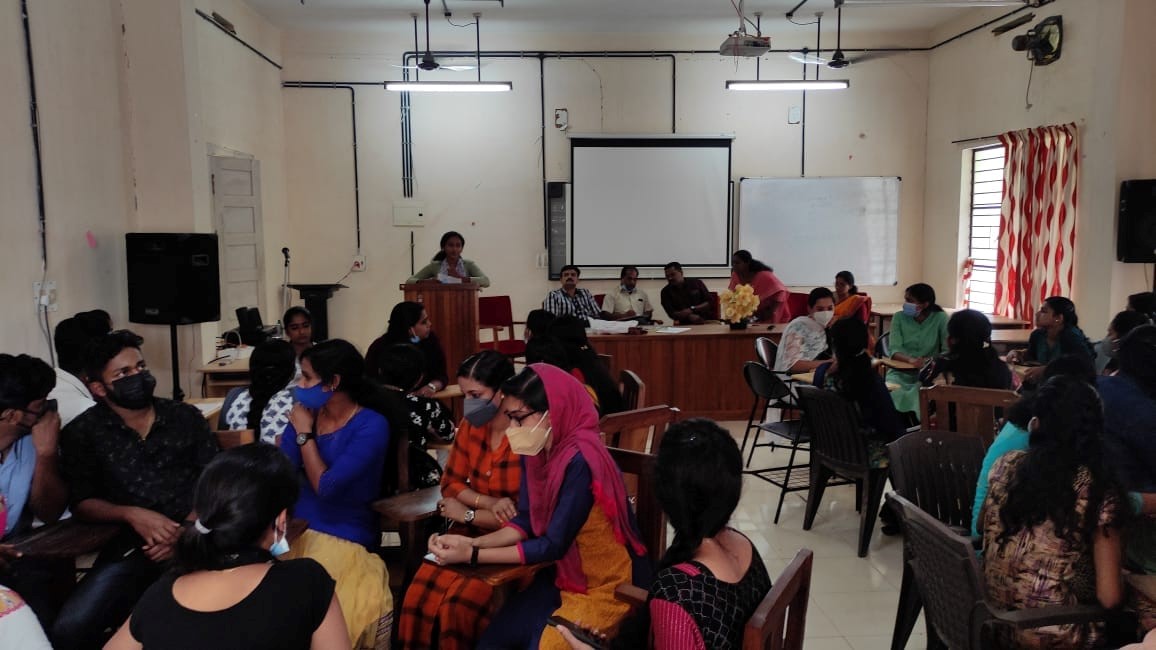
PGL Orientation class on 15.6.2022 @ ORICE Room.
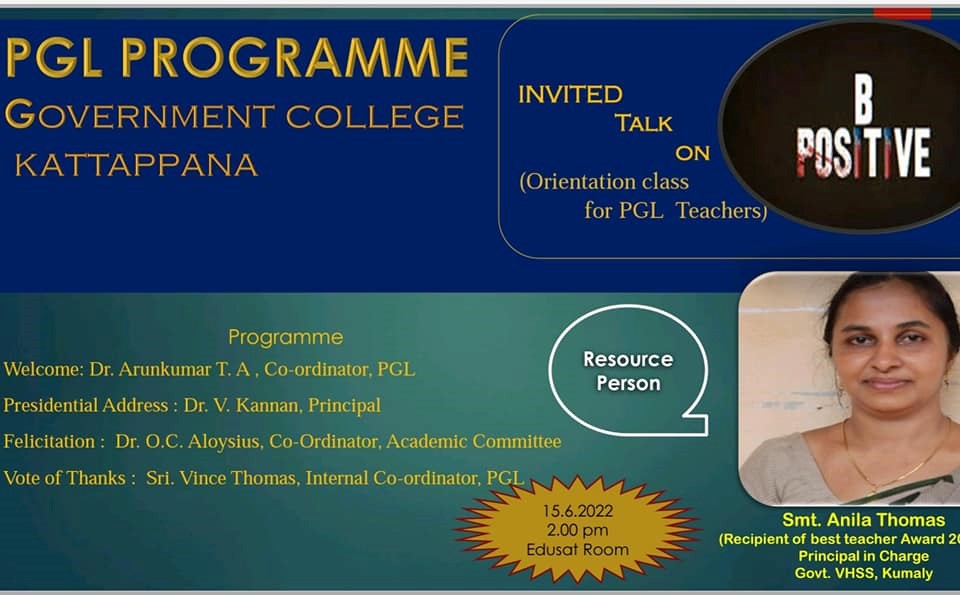
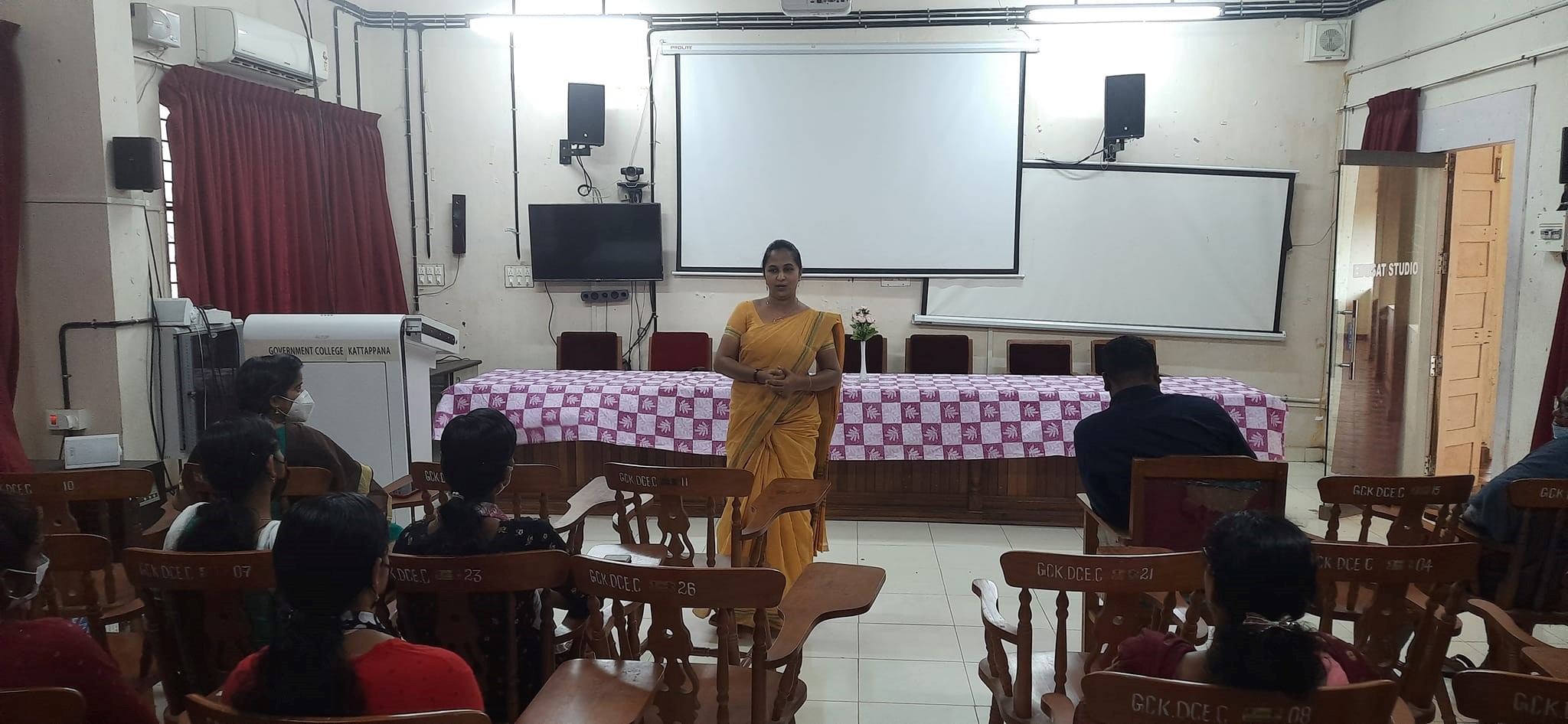
![]()